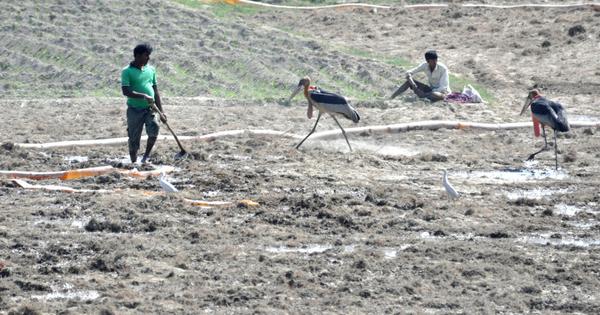For Arun Yadav, a farmer in the eastern Indian state of Bihar, December is the time to tend to his rabi (winter) crops and to protect endangered Greater Adjutant Storks (Leptoptilos dubius). Yadav is one of the hundreds of farmers who are ensuring conservation of the “Garuda” as the bird is called among the villagers of this riverine floodplains belt in Bhagalpur district of Bihar.
A towel wrapped around his head and ears as protection from the cold, Yadav stood near a tall tree on which there were two stork nests. “Hum log swechha se Garuda ka dekh bhal karte hain [We voluntarily take care of the storks],” Yadav said.
The bird had been ignored earlier. “We were not aware of the importance of this bird and treated it like any other,” Yadav said. “Everything started changing from 2006-’07 when three Greater Adjutant Storks were spotted, followed by six nests. I am one of the few farmers associated with its conservation since then.”
















